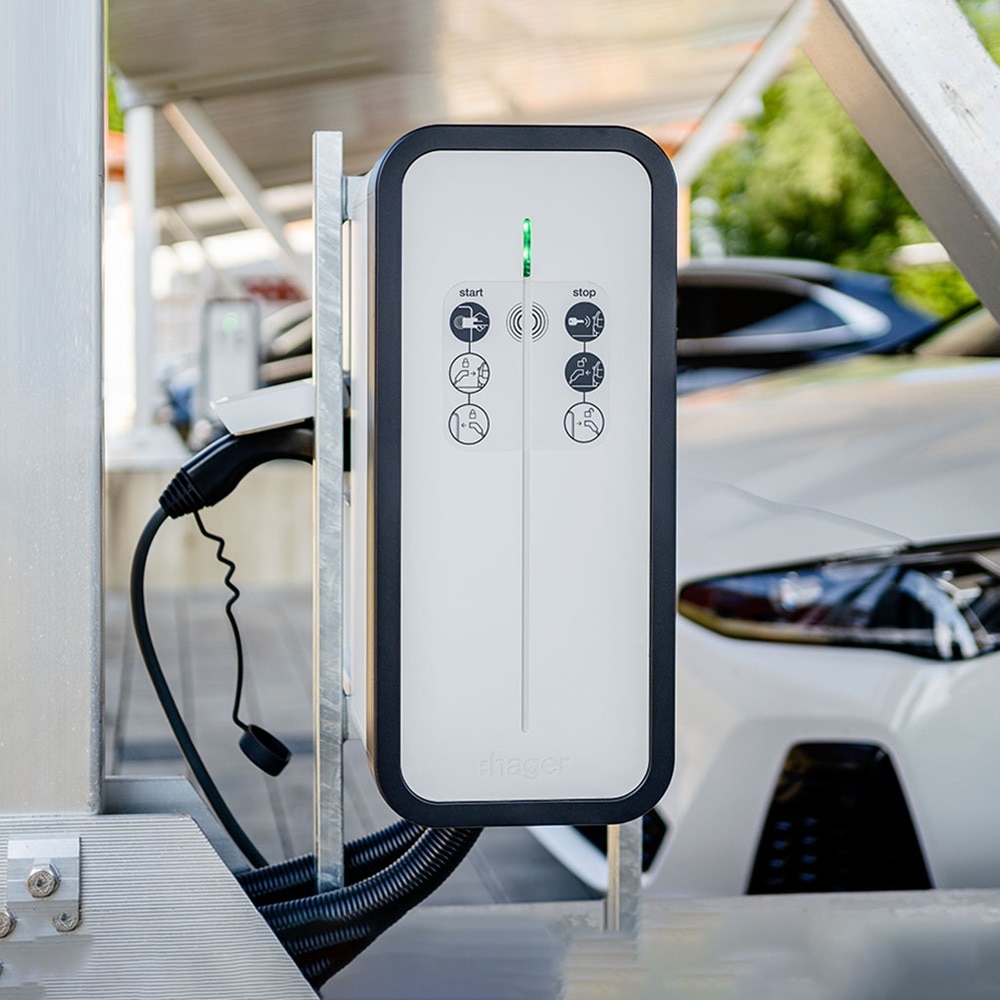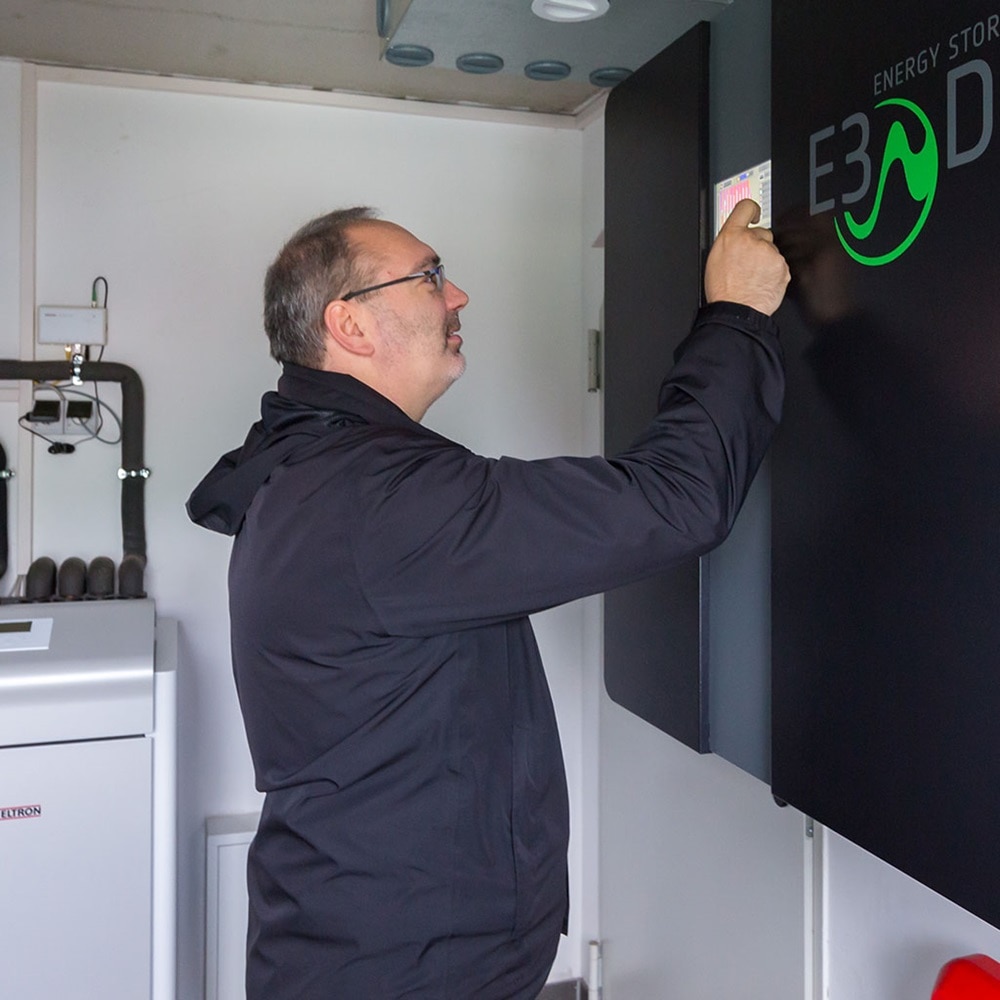5 reasons
the future
is electric

The fact is no longer a secret, and the understanding is by no means new: The urgent move away from fossil fuels towards renewable energies, particularly electric power, is an unavoidable necessity. Electric energy distinguishes itself through its cleanliness and efficiency.
At Hager Group, we are convinced that the future is electric. But what lies behind this conviction? Delve into this article to discover the five factors that are shaping the future energy supply.
1: The imperative of climate change
The threat of global warming demands our urgent shift to clean energy sources. A retreat from fossil fuels is not merely an ecological necessity, it also seems to be a legal inevitability with more and more governments moving to force adoption. As reported by the International Energy Agency in its Key World Energy Statistics 2020, our current energy matrix reveals an unsustainable reliance on nonrenewable sources. Transitioning to a sustainable way of energy supply is therefore not just a choice, it's a must – and electricity stands at the forefront of this transformative process. Unlike other sources, such as hydrogen or liquid fuels, electricity offers greater efficiency and requires less effort to generate, making it the ideal successor to an unsustainable energy past.

2: The universal flexibility of electricity
Whether coming from a hydroelectric generator or a photovoltaic solar module, most renewable energy sources supply energy in the form of electricity.
Nuclear power plants, despite controversy, are also a significant source of electricity in many countries. France operates 56 nuclear reactors, the USA 92, to name just a few examples.
But for all the advantages that an electric power supply brings and the progress we are making in developing it, we must accept one thing. It will not be the answer to all questions: Despite lower efficiency, container ships, planes and some large trucks may still require artificially created fuels based on green hydrogen.
3: Clean resources are expanding and getting cheaper
Renewable energy generation, once considered a pricey alternative, is now breaking cost barriers, redefining its role in our future energy mix. In 2019, the International Renewable Energy Agency (IRENA) reported a substantial drop in the cost of electricity from renewable sources over the preceding decade, with photovoltaic (PV) solar energy witnessing an 82% fall in prices and onshore wind a 39% decrease.
Today, residential PV electricity generation is becoming ubiquitous – not only thanks to its economic competitiveness compared to traditional power supply. The trend of decreasing costs for PV and wind technologies further mitigates the effects of fossils. As this affordability trend continues, we move closer to a future where the economic smart choice aligns with our environmental responsibilities.
4: Electricity’s role in fuel replacement and energy storage
As early as 2019, the International Energy Agency (IEA) emphasized that renewable energy can be stored in the form of hydrogen through a process called electrolysis. This can be converted back into energy on demand if renewable energy sources temporarily do not supply enough. In essence, this is a way to help maintain a steady, reliable supply of green energy, underlining electricity's key role
in our sustainable future.
But this is not the only way. A more established solution is to store renewable energy in batteries. Brands, such as E3DC in the DACH region or Hager, sell socalled home storage units, which are used to store energy generated by solar cells
in single- and multi-family homes. It can be called up whenever it is needed. In this way, the energy comes from the roof to the street and into the house

5: Electricity as a driver of global standards of living
Clean energy will raise the standard of living in countries with abundant renewable resources. This holds enormous potential for regions, such as North Africa, which can generate more renewable energy than the world consumes due to the high number of hours of sunshine. It could export surplus energy in the form of hydrogen or man-made fuels. This opens up opportunities for economic growth and job creation, while combating climate change and strengthening local economies.
The future of energy generation is not just about replacing old with new. It's about transforming the entire energy landscape into a more sustainable, more efficient and more resilient system. It's about empowering every home, every business and every country to become a player in the energy game, contributing to the collective goal of a greener planet.
